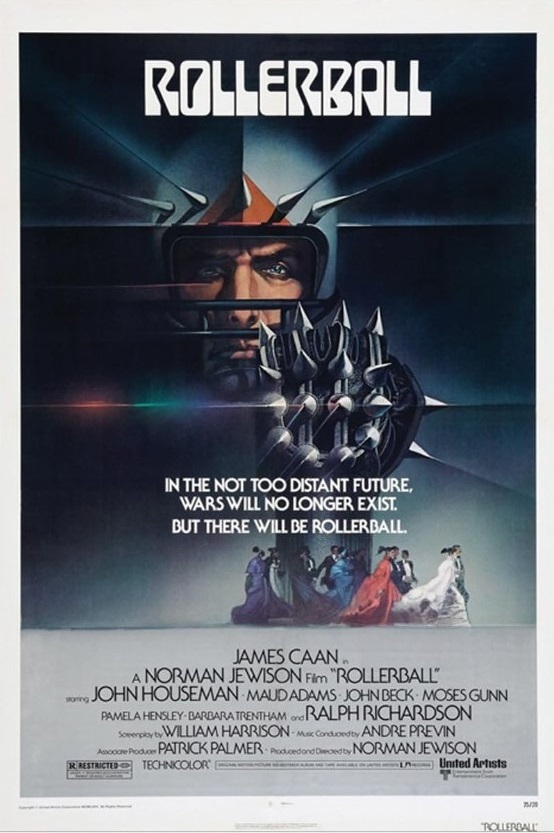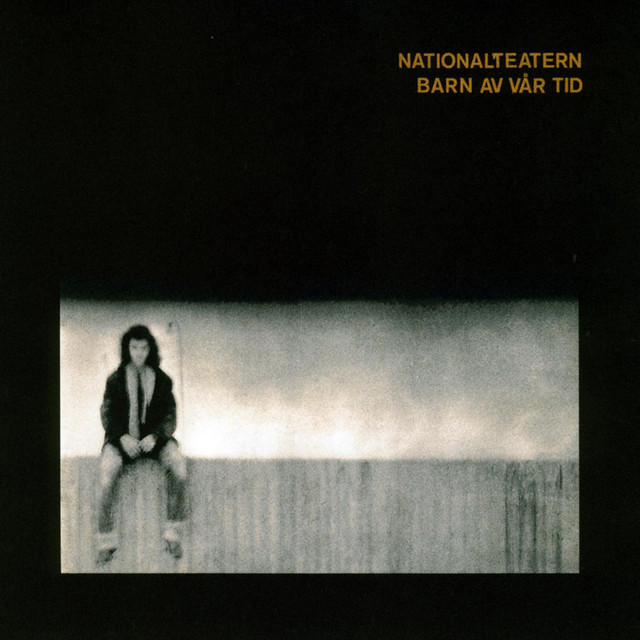 Some waiting is anxiety-filled, like the unnerving and excruciating wait for a follow-up album. Antic Clay released "Hilarious Death Blues" (HDB) in 2007. A true masterpiece in the one-album-only category. Much to everyone's surprise a second album "Broom of Fire" was announced to be released in 2018. The album was originally scheduled in 2017 as a 10 year anniversary of the release of HDB. But no album followed, only updates: songs written and ready to record (2019), "Center of the Night" and "Brother Wolf Sister Moon" released on Bandcamp (2020), "Elijah" released on Youtube (2022) and on Bandcamp (2024). "Broom of Fire" missed the 10 and 15 year anniversary, but could still make the 20 year anniversary. I mention this as a matter of fact, not as a criticism or any reprehension. My frustration comes from not knowing, if and, when a new album will be released. But, maybe I should lower my expectations. "Hilarious Death Blues" was an album that blew your mind. "A slow dark ride across the scorched hide of America. Think Johnny Cash riding a skeletal mule to Hell. Not without moments of beauty and hope, however". Recreating something close to this album should be impossible. Does Antic Clay still got the powers in him after all these years? I don't sense any HDB-vibe in the three above-mentioned songs. But I would like to be proven wrong.
Some waiting is anxiety-filled, like the unnerving and excruciating wait for a follow-up album. Antic Clay released "Hilarious Death Blues" (HDB) in 2007. A true masterpiece in the one-album-only category. Much to everyone's surprise a second album "Broom of Fire" was announced to be released in 2018. The album was originally scheduled in 2017 as a 10 year anniversary of the release of HDB. But no album followed, only updates: songs written and ready to record (2019), "Center of the Night" and "Brother Wolf Sister Moon" released on Bandcamp (2020), "Elijah" released on Youtube (2022) and on Bandcamp (2024). "Broom of Fire" missed the 10 and 15 year anniversary, but could still make the 20 year anniversary. I mention this as a matter of fact, not as a criticism or any reprehension. My frustration comes from not knowing, if and, when a new album will be released. But, maybe I should lower my expectations. "Hilarious Death Blues" was an album that blew your mind. "A slow dark ride across the scorched hide of America. Think Johnny Cash riding a skeletal mule to Hell. Not without moments of beauty and hope, however". Recreating something close to this album should be impossible. Does Antic Clay still got the powers in him after all these years? I don't sense any HDB-vibe in the three above-mentioned songs. But I would like to be proven wrong.
 I was mindlessly watching the Olympic Games on TV recently (32 sports and 329 events). I was stunned by an event. However, it wasn't Rachael "Raygun" Gunn's breakdance performance. It was velodrome cycling with fixed gear, no brakes and waylaying on each other. The detail that stunned me was an electric moped. The moped (half bike and half scooter) set the pace for the cyclists competing in the keirin race. The moped went around and around, gradually increasing the speed with each lap, and then it made a sudden exit and the race was on. This triggered a childhood memory. Rollerball is a 1975 dystopian science fiction film. The setting: society is governed by large corporations who controls all information. Not completely unlike today's digital landscape. Rollerball is a tough game with motorcycles, rollerskates and a steel ball. You score by placing the ball in the ball home. The teams are sponsored by the corporations. "Ladies and gentlemen, will you stand please for the playing of our Corporate Hymn." The main character is Jonathan E. He is urged and pressured to retire. His popularity and longevity as a player threaten the underlying idea of the game. Of course, he refuses to step down and retire. This creates a problem for the corporations. "In my opinion, we are confronted here with something of a situation. Otherwise, I would not have presumed to take up your time. Once again, it concerns the case of Jonathan E. We know we don't want anything extraordinary to happen to Jonathan. We've already agreeed on that. No accidents, nothing unnatural. The game was created to demonstrate the futility of individual effort. And the game must do its work. The Energy Corporation has done all it can, and if a champion defeats the meaning for which the game was designed, then he must lose. I hope you agree with my reasoning." [video conference with other corporate executives]. The corporations try different ways to push him out including changing the rules. The game degrades into ultraviolence. In the semi-final, the brutality of the match kills several players and leaves his best friend and teammate in a coma. The final becomes even more savage. There are no penalties, no substitutions, and no time limit in the hope that Jonathan E. will be killed during the game. Jonathan E. scores the only point and is the last man standing. The film ends with Jonathan E. taking a victory lap as the crowd chants his name, first softly, then slowly rising to a roar. The system has been beaten by an individual. And what triggered the memory? A noiseless electric moped is quite different from a roaring motorcycle. But, it's all the same to me.
I was mindlessly watching the Olympic Games on TV recently (32 sports and 329 events). I was stunned by an event. However, it wasn't Rachael "Raygun" Gunn's breakdance performance. It was velodrome cycling with fixed gear, no brakes and waylaying on each other. The detail that stunned me was an electric moped. The moped (half bike and half scooter) set the pace for the cyclists competing in the keirin race. The moped went around and around, gradually increasing the speed with each lap, and then it made a sudden exit and the race was on. This triggered a childhood memory. Rollerball is a 1975 dystopian science fiction film. The setting: society is governed by large corporations who controls all information. Not completely unlike today's digital landscape. Rollerball is a tough game with motorcycles, rollerskates and a steel ball. You score by placing the ball in the ball home. The teams are sponsored by the corporations. "Ladies and gentlemen, will you stand please for the playing of our Corporate Hymn." The main character is Jonathan E. He is urged and pressured to retire. His popularity and longevity as a player threaten the underlying idea of the game. Of course, he refuses to step down and retire. This creates a problem for the corporations. "In my opinion, we are confronted here with something of a situation. Otherwise, I would not have presumed to take up your time. Once again, it concerns the case of Jonathan E. We know we don't want anything extraordinary to happen to Jonathan. We've already agreeed on that. No accidents, nothing unnatural. The game was created to demonstrate the futility of individual effort. And the game must do its work. The Energy Corporation has done all it can, and if a champion defeats the meaning for which the game was designed, then he must lose. I hope you agree with my reasoning." [video conference with other corporate executives]. The corporations try different ways to push him out including changing the rules. The game degrades into ultraviolence. In the semi-final, the brutality of the match kills several players and leaves his best friend and teammate in a coma. The final becomes even more savage. There are no penalties, no substitutions, and no time limit in the hope that Jonathan E. will be killed during the game. Jonathan E. scores the only point and is the last man standing. The film ends with Jonathan E. taking a victory lap as the crowd chants his name, first softly, then slowly rising to a roar. The system has been beaten by an individual. And what triggered the memory? A noiseless electric moped is quite different from a roaring motorcycle. But, it's all the same to me.
 This is the second of six blog posts in a series of female artists or female-fronted bands that will be published under 2024. Metalheads can be vesatile and turn into full-blown goths. One good example is Dorthia Cottrell, best known as lead singer for the doom metal band Windhand. Dorthia Cottrell also has an acoustic solo career showcasing her sensitive and delicate side. The step from metal to dark country isn't far. In fact, there's only a thin line that separates them. In my line of work with this website I'm forced to wade through a quagmire of pretentious made up statements and labels to make the music seem more interesting. However, a review in Echoes and Dust caught my attention: "On her self-titled debut, Dorthia Cottrell is not merely another doomed soul moonlighting in morose country, but a fully fledged songwriter whose outstanding solo work has genuine crossover potential, and, if nurtured, may even eclipse her main band." She has made two albums. Her debut album was released in 2015. It's a dark album with a set of moody, low-key songs accompanied by acoustic and steel guitars. The best songs are "Cemetery Song", "Gold", "Orphan Bird", "Vessel", "Moth" and, last but not least, a cover of Townes Van Zandt's "Rake". The arrangements are spooky, atmospheric and semi-acoustic. This is so much better, than all the copiers, fakers, imitators, impersonaters and imposters out there. The cd copy is hard to find, but you can listen to the album on Bandcamp.
This is the second of six blog posts in a series of female artists or female-fronted bands that will be published under 2024. Metalheads can be vesatile and turn into full-blown goths. One good example is Dorthia Cottrell, best known as lead singer for the doom metal band Windhand. Dorthia Cottrell also has an acoustic solo career showcasing her sensitive and delicate side. The step from metal to dark country isn't far. In fact, there's only a thin line that separates them. In my line of work with this website I'm forced to wade through a quagmire of pretentious made up statements and labels to make the music seem more interesting. However, a review in Echoes and Dust caught my attention: "On her self-titled debut, Dorthia Cottrell is not merely another doomed soul moonlighting in morose country, but a fully fledged songwriter whose outstanding solo work has genuine crossover potential, and, if nurtured, may even eclipse her main band." She has made two albums. Her debut album was released in 2015. It's a dark album with a set of moody, low-key songs accompanied by acoustic and steel guitars. The best songs are "Cemetery Song", "Gold", "Orphan Bird", "Vessel", "Moth" and, last but not least, a cover of Townes Van Zandt's "Rake". The arrangements are spooky, atmospheric and semi-acoustic. This is so much better, than all the copiers, fakers, imitators, impersonaters and imposters out there. The cd copy is hard to find, but you can listen to the album on Bandcamp.
 I have been to quite a few parties in my life. Some of them were nice and tidy, others turned into utterly chaos. Some chaos were to be expected, but a few of them caught me by surprise. They came like a bolt from a clear sky. The worst party ever was thrown in 1980. In fact, I was one of the organizers. The party was held at Folkets Hus (The People’s House) in our small company town. The house was built in 1915 for cultural activities. The event didn’t have any signs of upcoming chaos (access to alcohol in combination with underlying drama and tension). On the contrary, the party had a healthy and sporty profile. The party was thrown by the sport association for students at my upper secondary school. The association focused on all sporting events that took place at school such as football, basketball, volleyball, orienteering, racket and water sports. The aim for the sport association wasn’t to foster future elite athletes, but to encourage physical activity. The sport association organized tournaments and other sport events. Throwing a party had a two-fold purpose. First, to raise money for future sport activities. Second, to offer something nice for the members of the sport association (and for all students at the upper secondary school). We didn’t have any experience of planning a party of this size, but we were confident. The planning committee consisted of the Board and the students who were in charge of the different sections. I was in charge of the football section. In hindsight, we began putting the cart before the horse. A top-notch and expensive PA system was rented without any discussions. A nice guy (we can call him J) in the sport association was interested in gourmet cooking. J came up with the idea that students could win a gourmet dinner. A dinner table could be placed on the stage, for everyone to see. Non-winners could buy home-made submarine sandwiches with ham and cheese. One thing we didn’t bother too much with was security issues. First, we didn’t expect any alcohol (we didn't have a permit). Second, the target group was students. We could handle problems ourselves. Third, we saved the security costs. These assumptions turned out to be wrong. The need for security was profoundly misjudged. There was alcohol around and the party was gate crashed by non-students. The lack of security led to additional costs.
I have been to quite a few parties in my life. Some of them were nice and tidy, others turned into utterly chaos. Some chaos were to be expected, but a few of them caught me by surprise. They came like a bolt from a clear sky. The worst party ever was thrown in 1980. In fact, I was one of the organizers. The party was held at Folkets Hus (The People’s House) in our small company town. The house was built in 1915 for cultural activities. The event didn’t have any signs of upcoming chaos (access to alcohol in combination with underlying drama and tension). On the contrary, the party had a healthy and sporty profile. The party was thrown by the sport association for students at my upper secondary school. The association focused on all sporting events that took place at school such as football, basketball, volleyball, orienteering, racket and water sports. The aim for the sport association wasn’t to foster future elite athletes, but to encourage physical activity. The sport association organized tournaments and other sport events. Throwing a party had a two-fold purpose. First, to raise money for future sport activities. Second, to offer something nice for the members of the sport association (and for all students at the upper secondary school). We didn’t have any experience of planning a party of this size, but we were confident. The planning committee consisted of the Board and the students who were in charge of the different sections. I was in charge of the football section. In hindsight, we began putting the cart before the horse. A top-notch and expensive PA system was rented without any discussions. A nice guy (we can call him J) in the sport association was interested in gourmet cooking. J came up with the idea that students could win a gourmet dinner. A dinner table could be placed on the stage, for everyone to see. Non-winners could buy home-made submarine sandwiches with ham and cheese. One thing we didn’t bother too much with was security issues. First, we didn’t expect any alcohol (we didn't have a permit). Second, the target group was students. We could handle problems ourselves. Third, we saved the security costs. These assumptions turned out to be wrong. The need for security was profoundly misjudged. There was alcohol around and the party was gate crashed by non-students. The lack of security led to additional costs.
 We had a couple of meetings where we distributed tasks and responsibilities. Maybe this strong belief in planning procedure foreshadowed our soon-to-be failures and the disastrous end result. Planning is everything but the plan is nothing. There were no “what if” considerations or alternative scenario planning whatsoever. Tickets had been sold in advance and if everything went according to plan we could look forward to a decent profit when all costs had been covered. The party started out like an ordinary school dance. Everything flowed. The sound system sounded thick and luxurious. People danced and behaved. Submarine sandwiches were sold. We, the organizers, carried out our duties. Maybe we could relax a little and drink some alcohol ourselves? What we didn't know was that a storm was gathering. It’s hard to keep a party discrete in a small town. Older non-students showed up. They had no tickets and no intention to get one either. They just walked right in through the door. J was preparing the fine dining in the kitchen. A notorious guy, who everybody was afraid of, showed up at the party. When he was sober he was shy, mild and harmless. When he drank alcohol he turned into a dangerous and unpredictable monster. You did best not to look into his dead and empty eyes and stay out of his way. He was easily offended and could assault you for no reason. He walked into the kitchen, muttered something incomprehensible, and then through the meal out of the open window. J was calm and constructive. He didn’t have any spare meal to prepare. He ran out, picked up the pieces and did his best to scrape the gravel, sand and dust of the meal. He must have done a pretty good job, since the winning couple seemed to enjoy their meal. Now things got quickly out of hand. There were more and more people, both outside and inside, and they were far more intoxicated than we expected. When the wine is in, the wit is out. Some people had drank too much and began to feel sick. Couples were making out in the most unexpected places. There were dramatic scenes with jealousy and broken relationships. However, there were no rows or fights. We lost control. It was chaos. We weren’t prepared for this. We were great as individuals, but we didn’t work as a team. No one was in charge. “You are needed downstairs”. “My task is to sell submarine sandwiches”. “Don’t you think you are more useful downstairs, considering the situation?”. “My task is to sell submarine sandwiches”. It didn’t matter that the sandwiches at this point were unpalatable. We, the organizing team, stood at our posts like tin soldiers. We didn’t have the ability to improvise, adapt and overcome.
We had a couple of meetings where we distributed tasks and responsibilities. Maybe this strong belief in planning procedure foreshadowed our soon-to-be failures and the disastrous end result. Planning is everything but the plan is nothing. There were no “what if” considerations or alternative scenario planning whatsoever. Tickets had been sold in advance and if everything went according to plan we could look forward to a decent profit when all costs had been covered. The party started out like an ordinary school dance. Everything flowed. The sound system sounded thick and luxurious. People danced and behaved. Submarine sandwiches were sold. We, the organizers, carried out our duties. Maybe we could relax a little and drink some alcohol ourselves? What we didn't know was that a storm was gathering. It’s hard to keep a party discrete in a small town. Older non-students showed up. They had no tickets and no intention to get one either. They just walked right in through the door. J was preparing the fine dining in the kitchen. A notorious guy, who everybody was afraid of, showed up at the party. When he was sober he was shy, mild and harmless. When he drank alcohol he turned into a dangerous and unpredictable monster. You did best not to look into his dead and empty eyes and stay out of his way. He was easily offended and could assault you for no reason. He walked into the kitchen, muttered something incomprehensible, and then through the meal out of the open window. J was calm and constructive. He didn’t have any spare meal to prepare. He ran out, picked up the pieces and did his best to scrape the gravel, sand and dust of the meal. He must have done a pretty good job, since the winning couple seemed to enjoy their meal. Now things got quickly out of hand. There were more and more people, both outside and inside, and they were far more intoxicated than we expected. When the wine is in, the wit is out. Some people had drank too much and began to feel sick. Couples were making out in the most unexpected places. There were dramatic scenes with jealousy and broken relationships. However, there were no rows or fights. We lost control. It was chaos. We weren’t prepared for this. We were great as individuals, but we didn’t work as a team. No one was in charge. “You are needed downstairs”. “My task is to sell submarine sandwiches”. “Don’t you think you are more useful downstairs, considering the situation?”. “My task is to sell submarine sandwiches”. It didn’t matter that the sandwiches at this point were unpalatable. We, the organizing team, stood at our posts like tin soldiers. We didn’t have the ability to improvise, adapt and overcome.
 A local theatre group had their props stored at the attic of the building. The theatre group had found easy money playing at schools and youth centers with secure financing from the municipality. In those days, there were such a thing as a cultural budget. Of course, this influenced the repertoire which was dominated by gloomy social realistic plays. A guy (we can call him M) in the organizing team borrowed a prop without permission. It was a security company uniform from ABAB. M started to patrol outside the place. He shouted “circulate” and performed his tasks so well that he was mistaken by passerby for a regular security guard. If they had looked a bit closer they would have noticed that the security guard was intoxicated. When the crowd didn’t circulate quickly enough he used his baton in a gentle way without any force. For Swedes at that time, this has special connotation. Nationalteatern was a Swedish theatre group and progressive rock group in the 1970s that featured leftist political lyrics. In one of their most classic songs the lyrics goes like this: "Vaktbolagen kommer snart / Då blir det en jävla fart / De har betalt för att jaga ungar / Gården är stängd för längesen / Snuten jagar tonårsgäng / Natten är så hård / För betongens kungar" approximately translated into "The security companies are coming soon / Then it's going to be damn action / They're paid to hunt kids / The youth center is closed a long time ago / The cops are chasing teenage gangs / The night is so hard / For the kings of the concrete". The lyrics still stands after all these years. These lyrics also resonates with the repertoire of the local theatre group. Needless to say, they were a bleak copy of the original.
A local theatre group had their props stored at the attic of the building. The theatre group had found easy money playing at schools and youth centers with secure financing from the municipality. In those days, there were such a thing as a cultural budget. Of course, this influenced the repertoire which was dominated by gloomy social realistic plays. A guy (we can call him M) in the organizing team borrowed a prop without permission. It was a security company uniform from ABAB. M started to patrol outside the place. He shouted “circulate” and performed his tasks so well that he was mistaken by passerby for a regular security guard. If they had looked a bit closer they would have noticed that the security guard was intoxicated. When the crowd didn’t circulate quickly enough he used his baton in a gentle way without any force. For Swedes at that time, this has special connotation. Nationalteatern was a Swedish theatre group and progressive rock group in the 1970s that featured leftist political lyrics. In one of their most classic songs the lyrics goes like this: "Vaktbolagen kommer snart / Då blir det en jävla fart / De har betalt för att jaga ungar / Gården är stängd för längesen / Snuten jagar tonårsgäng / Natten är så hård / För betongens kungar" approximately translated into "The security companies are coming soon / Then it's going to be damn action / They're paid to hunt kids / The youth center is closed a long time ago / The cops are chasing teenage gangs / The night is so hard / For the kings of the concrete". The lyrics still stands after all these years. These lyrics also resonates with the repertoire of the local theatre group. Needless to say, they were a bleak copy of the original.
 You might think that I was the responsible adult in the room. In the middle of the chaos, I decided to give priority to give a lovely girl a ride home on my red Puch Dakota 1969. This requires a small disgression. I have no photo left of the moped, but it flickered by when I was rewatching a film from 1978 (Open Archive, Swedish Television, SVTPlay). You can discern the moped in the grainy image (the red moped to right). The film is called "Peter's Baby". It's a mini-series in four episodes about a teenager who takes care of his newborn daughter, when her mother has to move away. The story deals with his struggle for independence and his personal growth. The mini-series hasn't aged well. Artistically, it's overloaded with moral sermons and platitudes. Technically, it has a lot of problems. To name a few: the script is lousy, the dialogue is stilted, the lightning is terrible, the cutting is crap, a lot of continuity errors, and last but not least, the music is unbearable. It's hard to believe that this was created by a professional film team. The film location was our little company town. Our teacher had connections and all classroom scenes and many other scenes were filmed with our class as extras. The main character was played by the son of one of Sweden's most popular artists. Unfortunately, in this case talent had skipped a generation. He couldn't act or deliver lines. Not to mention, his unconvincing attempts to perform a deep drag on cigarettes or drink beer from a can. He looked ridiculous when he tried to act like a bad boy. His nemesis in the film was played by a guy who later became a renowned actor equally known for his drug problems and scandals. When you make film you need people who can act and a lot of extras. When I rewatched the mini-series, it struck me how many nepo kids there were acting as extras. Seems like every parent in the cultural sector had sent their kids to summer camp. Despite the fact, that the nepo kids had one or zero lines they somehow got more film time. A very fervent communist teacher played herself. Naturally, she held a megaphone in one of the key scenes. I remember one time in school when she got very upset and angry when I happened to say "East Germany". She corrected me instantly and harshly, it's called the "German Democratic Republic". Only people who don't recognize its right to exist say "East Germany", she added. Well, whatever. The Berlin Wall fell in 1989. Back to the party. The party went on until it culminated. At last, people began to drop off and we could begin to assess the situation. The last people left. The place looked like a battlefield. There were empty cans, broken glass and cigarette butts everywhere. We locked up and decided to come back in the morning and clean. Not everyone in the organizing team came. Some found excuses not to come, others simply didn’t appear. It was an unpleasant job. A sour smell of spilled beer on wooden floor and undetected vomit met us. Only people made of the right stuff show up on a summer morning to clean up the last vomit, pick up glass splinters, ventilate the venue, wipe the floors and move tables and chairs. This test sort out the grain from the whiff. In my opinion, the show/no-show test is more reliable than any other personality test, because it measures actual behavior. We cleaned for a couple of hours at the best of our ability. We locked up and went home.
You might think that I was the responsible adult in the room. In the middle of the chaos, I decided to give priority to give a lovely girl a ride home on my red Puch Dakota 1969. This requires a small disgression. I have no photo left of the moped, but it flickered by when I was rewatching a film from 1978 (Open Archive, Swedish Television, SVTPlay). You can discern the moped in the grainy image (the red moped to right). The film is called "Peter's Baby". It's a mini-series in four episodes about a teenager who takes care of his newborn daughter, when her mother has to move away. The story deals with his struggle for independence and his personal growth. The mini-series hasn't aged well. Artistically, it's overloaded with moral sermons and platitudes. Technically, it has a lot of problems. To name a few: the script is lousy, the dialogue is stilted, the lightning is terrible, the cutting is crap, a lot of continuity errors, and last but not least, the music is unbearable. It's hard to believe that this was created by a professional film team. The film location was our little company town. Our teacher had connections and all classroom scenes and many other scenes were filmed with our class as extras. The main character was played by the son of one of Sweden's most popular artists. Unfortunately, in this case talent had skipped a generation. He couldn't act or deliver lines. Not to mention, his unconvincing attempts to perform a deep drag on cigarettes or drink beer from a can. He looked ridiculous when he tried to act like a bad boy. His nemesis in the film was played by a guy who later became a renowned actor equally known for his drug problems and scandals. When you make film you need people who can act and a lot of extras. When I rewatched the mini-series, it struck me how many nepo kids there were acting as extras. Seems like every parent in the cultural sector had sent their kids to summer camp. Despite the fact, that the nepo kids had one or zero lines they somehow got more film time. A very fervent communist teacher played herself. Naturally, she held a megaphone in one of the key scenes. I remember one time in school when she got very upset and angry when I happened to say "East Germany". She corrected me instantly and harshly, it's called the "German Democratic Republic". Only people who don't recognize its right to exist say "East Germany", she added. Well, whatever. The Berlin Wall fell in 1989. Back to the party. The party went on until it culminated. At last, people began to drop off and we could begin to assess the situation. The last people left. The place looked like a battlefield. There were empty cans, broken glass and cigarette butts everywhere. We locked up and decided to come back in the morning and clean. Not everyone in the organizing team came. Some found excuses not to come, others simply didn’t appear. It was an unpleasant job. A sour smell of spilled beer on wooden floor and undetected vomit met us. Only people made of the right stuff show up on a summer morning to clean up the last vomit, pick up glass splinters, ventilate the venue, wipe the floors and move tables and chairs. This test sort out the grain from the whiff. In my opinion, the show/no-show test is more reliable than any other personality test, because it measures actual behavior. We cleaned for a couple of hours at the best of our ability. We locked up and went home.
 Then came the day of reckoning. The theatre group was angry, the civic department in the municipality was angrier, but the angriest of them all was the school principal. We had disgraced the school (and thereby him). It was a small company town. Rumours (true and false) had begun to spread of what actually took place. We, the organizing team, stood in a crossfire of questions and accusations. The girls in our team somehow got away easier. Who was in charge? How could we had let this happen? What were we thinking? We hadn’t had the time to prepare our defense. We tried to play it down. Well, no one died or was harmed. Of course, this strategy backfired. The theatre group claimed money for damaged props (if my memory serves me correct, a ventriloquist doll was damaged). We could have played the "we have no facility" card to appeal to the theatre group, but we didn’t. The civic department claimed money for minor damages and extra cleaning. The expected profit went up in smoke. I think we broke even, after all the costs were paid. The first purpose, to raise money to future sport events failed. The second purpose, to offer something nice for the members and students was – maybe or maybe not – fulfilled. The party will in any case be remembered. The sport association was banned, if not for life, but for a foreseeable future to rent any facilities from the municipality. We, the organizing team, didn’t have an after action review. In fact, we never talked about what when wrong and what we could have done better. Personally, I learned some lessons and drew some conclusions that have helped me in working life: is this going to work, are all the necessary prerequisites there, is there a risk analysis and risk management in place worthy of its name. But, the most important lesson of all is to live and learn.
Then came the day of reckoning. The theatre group was angry, the civic department in the municipality was angrier, but the angriest of them all was the school principal. We had disgraced the school (and thereby him). It was a small company town. Rumours (true and false) had begun to spread of what actually took place. We, the organizing team, stood in a crossfire of questions and accusations. The girls in our team somehow got away easier. Who was in charge? How could we had let this happen? What were we thinking? We hadn’t had the time to prepare our defense. We tried to play it down. Well, no one died or was harmed. Of course, this strategy backfired. The theatre group claimed money for damaged props (if my memory serves me correct, a ventriloquist doll was damaged). We could have played the "we have no facility" card to appeal to the theatre group, but we didn’t. The civic department claimed money for minor damages and extra cleaning. The expected profit went up in smoke. I think we broke even, after all the costs were paid. The first purpose, to raise money to future sport events failed. The second purpose, to offer something nice for the members and students was – maybe or maybe not – fulfilled. The party will in any case be remembered. The sport association was banned, if not for life, but for a foreseeable future to rent any facilities from the municipality. We, the organizing team, didn’t have an after action review. In fact, we never talked about what when wrong and what we could have done better. Personally, I learned some lessons and drew some conclusions that have helped me in working life: is this going to work, are all the necessary prerequisites there, is there a risk analysis and risk management in place worthy of its name. But, the most important lesson of all is to live and learn.
 This print "Relativity" was on my adolescent wall. It's a lithograph print by the Dutch artist M. C. Escher. It was first printed in December 1953. The lithograph depicts a world in which the normal laws of gravity do not apply. There are no less than three sources of gravity at play, each being orthogonal to the two others. Adding to this, there are sixteen faceless characters, spread between each gravity source. Each character lives in one of the gravity wells, where normal physical laws apply. The confusion of the print comes from the fact that the three gravity sources are depicted in the same space. The structure has seven stairways, and each stairway can be used by people who belong to two different gravity sources. This creates interesting phenomena, such as in the top stairway, where two inhabitants use the same stairway in the same direction and on the same side, but each using a different face of each step; thus, one descends the stairway as the other climbs it, even while moving in the same direction nearly side by side (just as in a workplace). In the other stairways, inhabitants are depicted as climbing the stairways upside-down, but based on their own gravity source, they are climbing normally. It's a lot of things to keep track on here. My spatial ability has never been the best. In my adolescence, I made futile attempts to follow a gravity well an try to determine exactly where it went over into another gravity well. Not anymore. I don't have the print in my possession anymore. And besides, the world is complicated as it is.
This print "Relativity" was on my adolescent wall. It's a lithograph print by the Dutch artist M. C. Escher. It was first printed in December 1953. The lithograph depicts a world in which the normal laws of gravity do not apply. There are no less than three sources of gravity at play, each being orthogonal to the two others. Adding to this, there are sixteen faceless characters, spread between each gravity source. Each character lives in one of the gravity wells, where normal physical laws apply. The confusion of the print comes from the fact that the three gravity sources are depicted in the same space. The structure has seven stairways, and each stairway can be used by people who belong to two different gravity sources. This creates interesting phenomena, such as in the top stairway, where two inhabitants use the same stairway in the same direction and on the same side, but each using a different face of each step; thus, one descends the stairway as the other climbs it, even while moving in the same direction nearly side by side (just as in a workplace). In the other stairways, inhabitants are depicted as climbing the stairways upside-down, but based on their own gravity source, they are climbing normally. It's a lot of things to keep track on here. My spatial ability has never been the best. In my adolescence, I made futile attempts to follow a gravity well an try to determine exactly where it went over into another gravity well. Not anymore. I don't have the print in my possession anymore. And besides, the world is complicated as it is.
